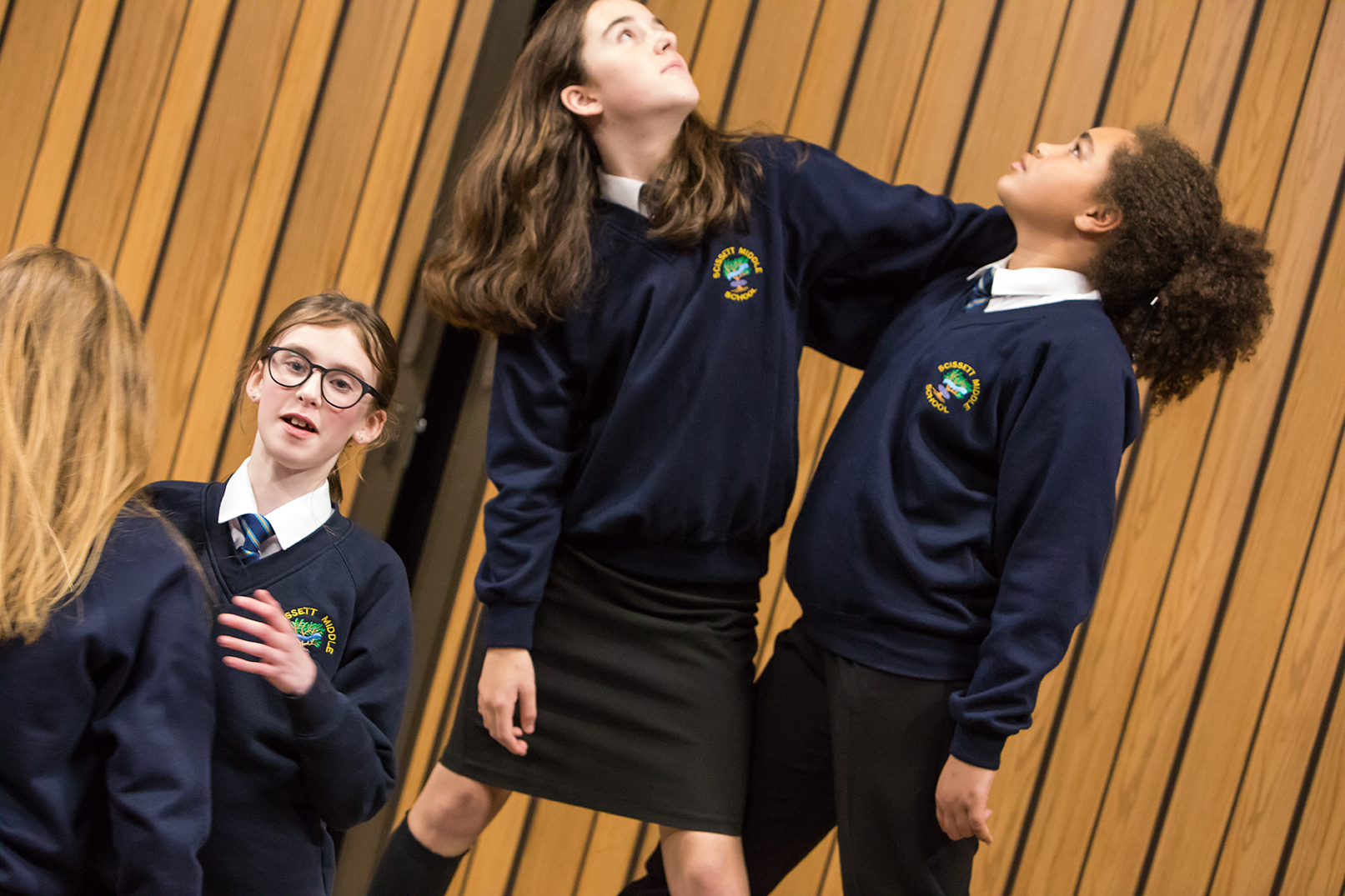Strategic Lead for Performance: Mr M. Osborne
All the world's a stage. And all the men and women are merely players: they have their exits and their entrances; and one man in his time plays many parts...
William Shakespeare, As You Like It
Drama an important means of stimulating creativity and challenging students’ perceptions about their world and about themselves. Dramatic exploration can provide students with an outlet for emotions, thoughts, and dreams that they might not otherwise have the means to express. A student can, if only for a few moments, become another, explore a new role, try out and experiment with various personal choices and solutions to very real problems-problems from their own life, or problems faced by characters in literature or historical figures. This can happen in a safe atmosphere, where actions and consequences can be examined, discussed, and in a very real sense experienced.
At the centre of all Drama is communication. Like all the arts, Drama allows students to communicate with and understand others in new ways. Perhaps more than any other art form, Drama also provides training in the very practical aspects of communication so necessary in today's increasingly information-centred world. Students who have participated in Dramatic activities are less likely to have difficulty speaking in public, will be more persuasive in their communications, both written and oral, will be better able to put themselves into others' shoes and relate to them, and will have a more positive, confident self-image. Students in Drama will learn to work together, cooperate, find the best way for each member of a group to contribute, and listen to and accept the viewpoints and contributions of others.
Curriculum Overview
In Drama, pupils complete one term of Drama in a rotation with Design Technology. Pupils will cover the following topics.
Year 6
|
Roald Dahl |
An introductory unit which introduces dramatic techniques such as tableau, split screen, hot seating, role-play and characterisation through studying a number of Roald Dahl poems and novels. |
| Darkwood Manor |
A spooky journey to the mysterious Darkwood Manor. An introduction to physical theatre techniques, whole class acting with a focus on building tension. |
Year 7
Pupils study 3 units of work taught across 13 weeks.
| Introduction to Drama Skills |
Tableau, split screen, asides to the audience, role-play, characterisation and stage directions. Pupils use these skills to build towards a short performance of their own. |
| Shakespeare |
A text-based unit provides pupils with the practical skills to explore and perform elements of four Shakespearean plays. This includes the study of language to support English, themes within the plays, the reading and performance from a script. |
| Cluedo |
A scheme of work based of the board game. Students use characterisation, interrogation and hot seating to develop the characters of the suspects within the storyline. Forum Theatre helps students to engage with the action and use improvisation skills. Fingerprint dusting, clue finding and problem solving encourage group work and co-operation. |
Year 8
Pupils study 3 units of work taught across 13 weeks.
| Physical Comedy |
Through the study of mime, Commedia de l’Arte and modern British comics such as Rowan Atkinson. Developing pupils' ability to create comedic moments from simple scenarios. Using music to facilitate and devise their own slap-stick comedic performances. |
| Wonder.land |
Using Wonder.land as a text, this is a practitioner-based unit of work. Students study Stanislavski and Naturalism. In contrast, they study the work of Frantic Assembly and Akram Khan to develop their knowledge and skill level in physical theatre, pedestrian movement and the use of dance to portray emotion and storyline. |
| Theatre in Education |
Using relatable themes and issues to create a piece of drama appropriate for a target audience. Pupils will learn how to deliver an important message in an engaging way through games/play, rewind, fast forward thought tracking, use of signs as well as the skills learnt in their introduction to drama and the physical comedy unit. |
Careers in this subject
- Actor
- Stage manager
- Lighting designer
- Drama facilitator
- Choreographer
- Producer
- Radio broadcaster
- Marketing manager
- Arts administrator
- Television presenter
- Public relations manager
